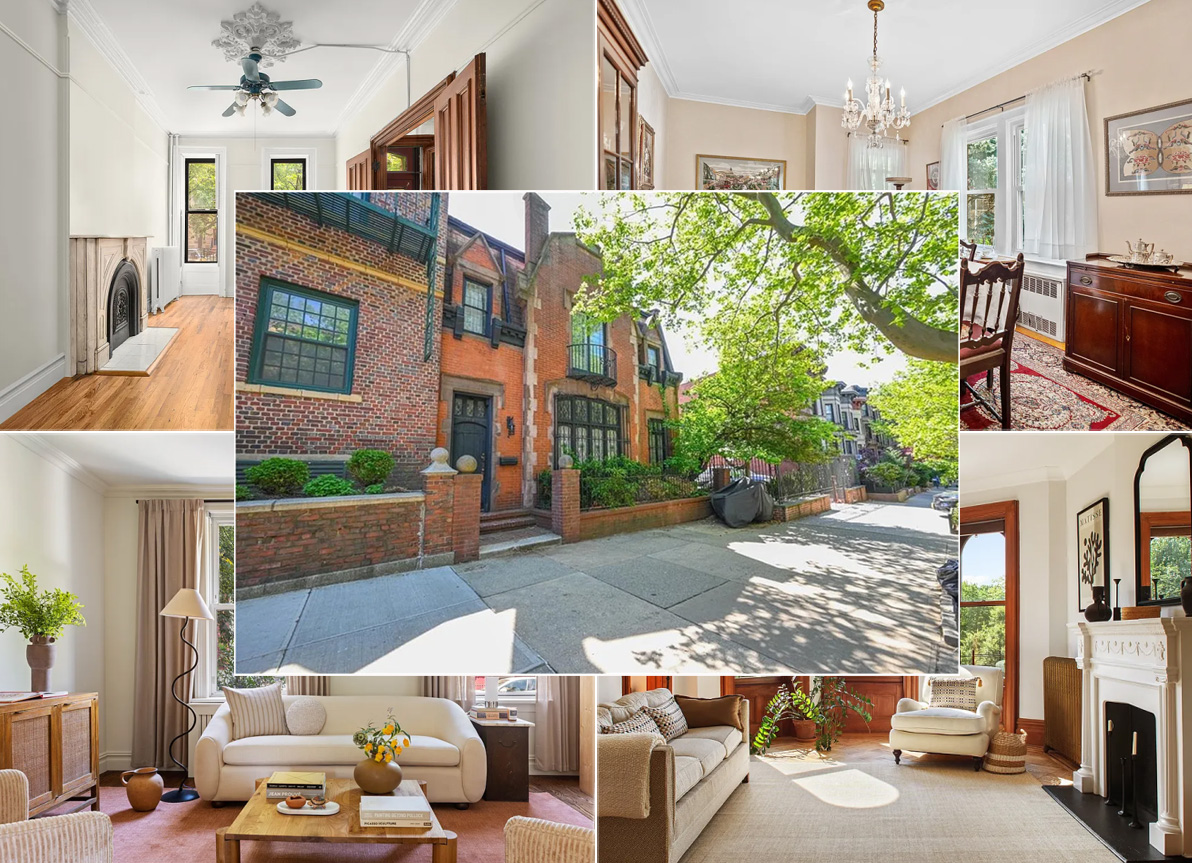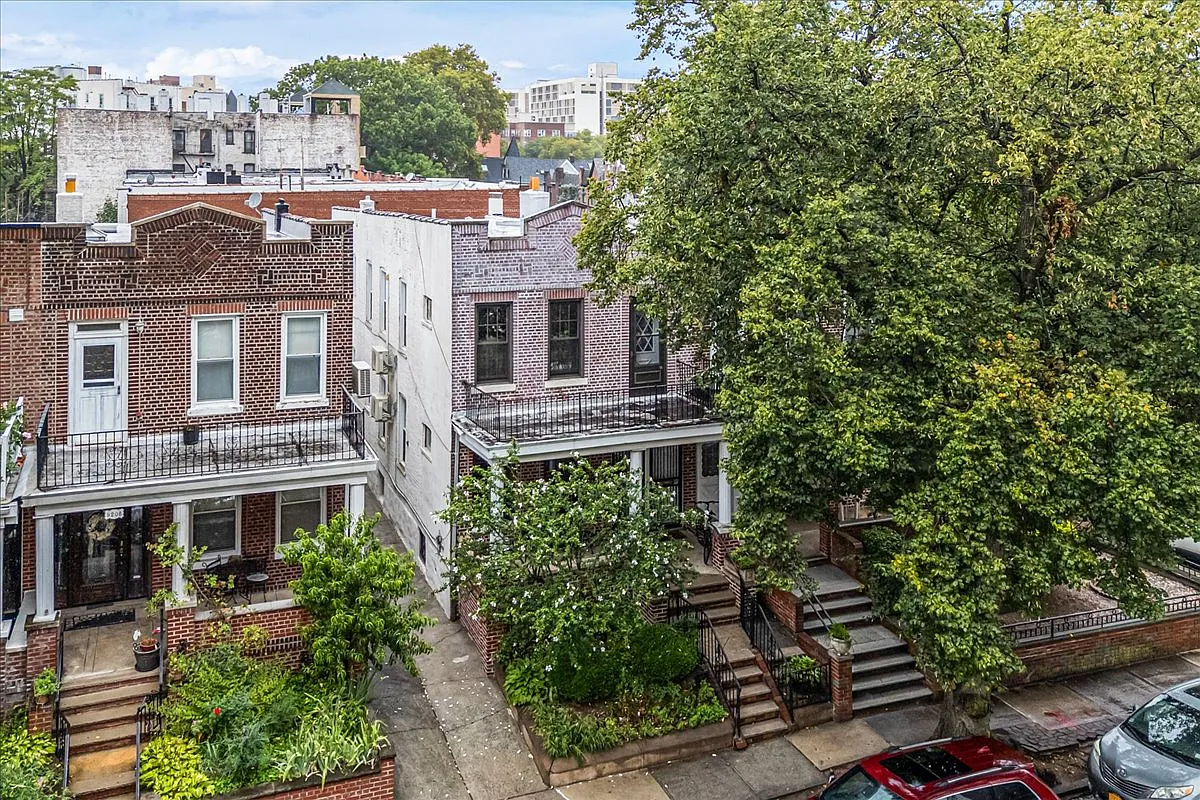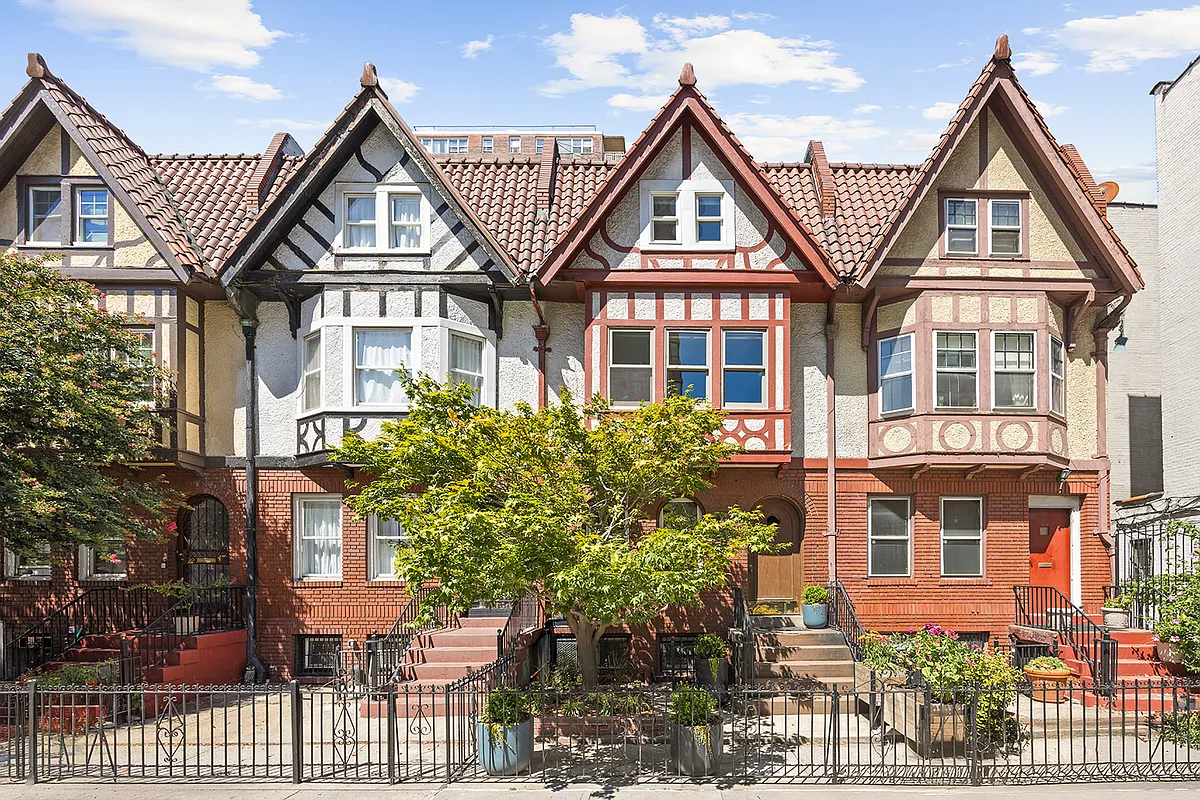Attendence Falls at Brooklyn Open Houses
Open houses are rarely (maybe never?) mentioned as places to seek solace within the city, but the NY Observer finds they may be approaching a Zen-like quality because, well, nobody’s at them. “It was the Sunday before the European markets began to tumble, during peak open house hours, and the buyer traffic through Brooklyn’s newer…

 Open houses are rarely (maybe never?) mentioned as places to seek solace within the city, but the NY Observer finds they may be approaching a Zen-like quality because, well, nobody’s at them. “It was the Sunday before the European markets began to tumble, during peak open house hours, and the buyer traffic through Brooklyn’s newer towers was slow,” they write. “Extra special amenities played an integral role in luring buyers when neighborhood amenities were lacking, but with prices still sky high and memories of the borough’s boom fading fast, it seems the only reasonable options are to start cutting prices or to offer condos as rentals,” opines the Observer. “Both of these things are already happening. A pretty kitchen backsplash and walk-in closets just won’t cut it anymore.” Well, what should these buildings do to fill up those open houses again?
Open houses are rarely (maybe never?) mentioned as places to seek solace within the city, but the NY Observer finds they may be approaching a Zen-like quality because, well, nobody’s at them. “It was the Sunday before the European markets began to tumble, during peak open house hours, and the buyer traffic through Brooklyn’s newer towers was slow,” they write. “Extra special amenities played an integral role in luring buyers when neighborhood amenities were lacking, but with prices still sky high and memories of the borough’s boom fading fast, it seems the only reasonable options are to start cutting prices or to offer condos as rentals,” opines the Observer. “Both of these things are already happening. A pretty kitchen backsplash and walk-in closets just won’t cut it anymore.” Well, what should these buildings do to fill up those open houses again?
The Quietest Places To Pass a Sunday [NY Observer]
Photo by @chris.





Miss Muffett —
The significant problem for the nation’s economy is that many states — including most importantly California — limit a lender’s recourse upon a mortgage default to a foreclosure on the property — i.e., they can’t go directly after the borrower for the excess.
While this is all nice and good from a consumer protection perspective, these laws, combined with the significant drop in house prices, create a real incentive for homeowners to walk away and start over in a new house bought for a lower price. If they buy the new house when still current on their existing mortgage, they don’t really have to worry too much about the hit to the credit score and can lock in a lower payment going forward. This incentive, however, puts significant downward pressure on house prices, as the more things drop, the more likely folks are to bail.
The laws are different in New York…but the collapse of the housing market in other parts of the country will (has..) result in a collapse of the financial sector, which is a key driver of NY’s economy, as well as a collapse in the economy of other countries (whose buyers, as we all know, have been highlighted out as the saviors of the NY real estate market).
Big picture — this is BAD news and we do not yet know the ultimate effect.
While home owners just needs to keep their own heads above water to survive, in a co-op, one also has to worry about the corporation keeping up on its payments.
If the corporation defaults on its underlying mortgage, the shares become worthless, but shareholders still have co-op loans to pay off. It is a bad scenario. Particularly vulnerable are the small, three-and-four unit coops, or the ones with a large percentage of rent-control tenants. Defaults like this happened all over the City in the 1930’s and to a lesser extent, in the late 1980’s.
Wasder – we too are looking for a 2-family house, and while we are lucky to have cash reserves from previous sales, one thing has changed is that we probably want to shoot for a more conservative budget given the current economic climate. We were willing to “stretch” before, but this does not seem a wise time to do so. But had we bought earlier, like you, and loved our house, we would just realize that as long as were in it for the long term, we’d just have to tighten our belts and make do during the lean years as well as possible. But for buyers entering market now, the overwhelming signs of further price reductions to come create a very different climate that when you probably bought. It’s one thing to have a “paper” loss – it’s another to see, as I have, in one week, a house hitting the market at 2 mil, and weeks later, it being reduced by several hundred thousand dollars. Now, why would I want to be out all that extra money when I know more price cuts are coming? We’re fine in our current rental and can wait, but ultimately, I think a decline in prices will be good for everyone since most sellers will still do fine whereas many previously priced-out buyers can now enter the market.
Miss Muffet I agree with you about the long term buyer. It is a paper loss only. The only thing is the psychological aspect of it. It is disconcerting to be “out” a substantial amount of money at any time and more so when it relates to one’s most important piece of property. However, if the monthly payments are manageable, the end result in a practical matter is negligible. As long as the market recovers in the next decade or so I am not concerned about my home’s value. I suspect once prices shake out to whatever level they are going to shake out to you will see more people doing what I did, and buying two family houses that provide some protection against monthly expenses.
Anybody thinking of buying a condo in Mexico should check the exchange rate today!!!!
I went to an open house in Brooklyn Heights this Sunday around 1PM, 1-bedroom on Grace Court. 1 hour into the open house, I was the 3rd person to visit. The unit had updated kitchen and bathroom, but the fact was, $400K for a bedroom with no more than 100 square feet and a kitchen/living room/dining room area that was no more than 150 square feet is just ridiculous. I am in the fortunate position ready to pay cash in full for a place like this, but there is no way I’m ready to make a move until prices on a place like this come down a solid 25%.
Regarding those who are “under water” – I don’t quite get why this is a huge problem if those recent buyers intend to stay in their places for many years to come. If that’s the case, it’s just a paper loss, and eventually the market will recover and hopefully at worst (depending on when they sell, and how long market takes to recover), they’ll have saved rent money and it will be a wash. Also, many many current owners are still way above water, even if prices go down a lot – since prices shot up so high, so fast. For example, I have friends who bought a 4-story, 20′ wide townhouse in Prime park slope for just under $1mil in early 2001. Of late, those kinds of houses were asking $2.5, if not more! So, let’s say there’s a drastic correction and the market plummets by half (which I doubt but in this climate anything is possible). So that house let’s say sells for $1.25million. Well, those people who bought just 8 years ago, still clear 250K from their initial investment, not to mention all the years they saved in rent/tax breaks. Yes, flippers/speculators will suffer now, as will those who used their home like an ATM, but I would hope the vast majority of owners do not fit these categories.
As for the open houses, I think many buyers, like myself, are just waiting til the sobering new reality sinks in to NYC sellers and they adjust their asking prices to reflect this new reality. The continuing greed of certain brokers/sellers still astounds me, especially since they can still come out of this with a net profit, but just vastly reduced expectations. Until that starts to happen I may go by open houses, but I’d rather save my time until prices readjust to more realistic levels.
Only the brokers’ open house gets food. Maybe that’ll change. But I bet those are packed now with brokers who can’t afford their own lunch anymore.
They need to start offering complimentary lunch. That’s what we in PR do with media. Very successful.